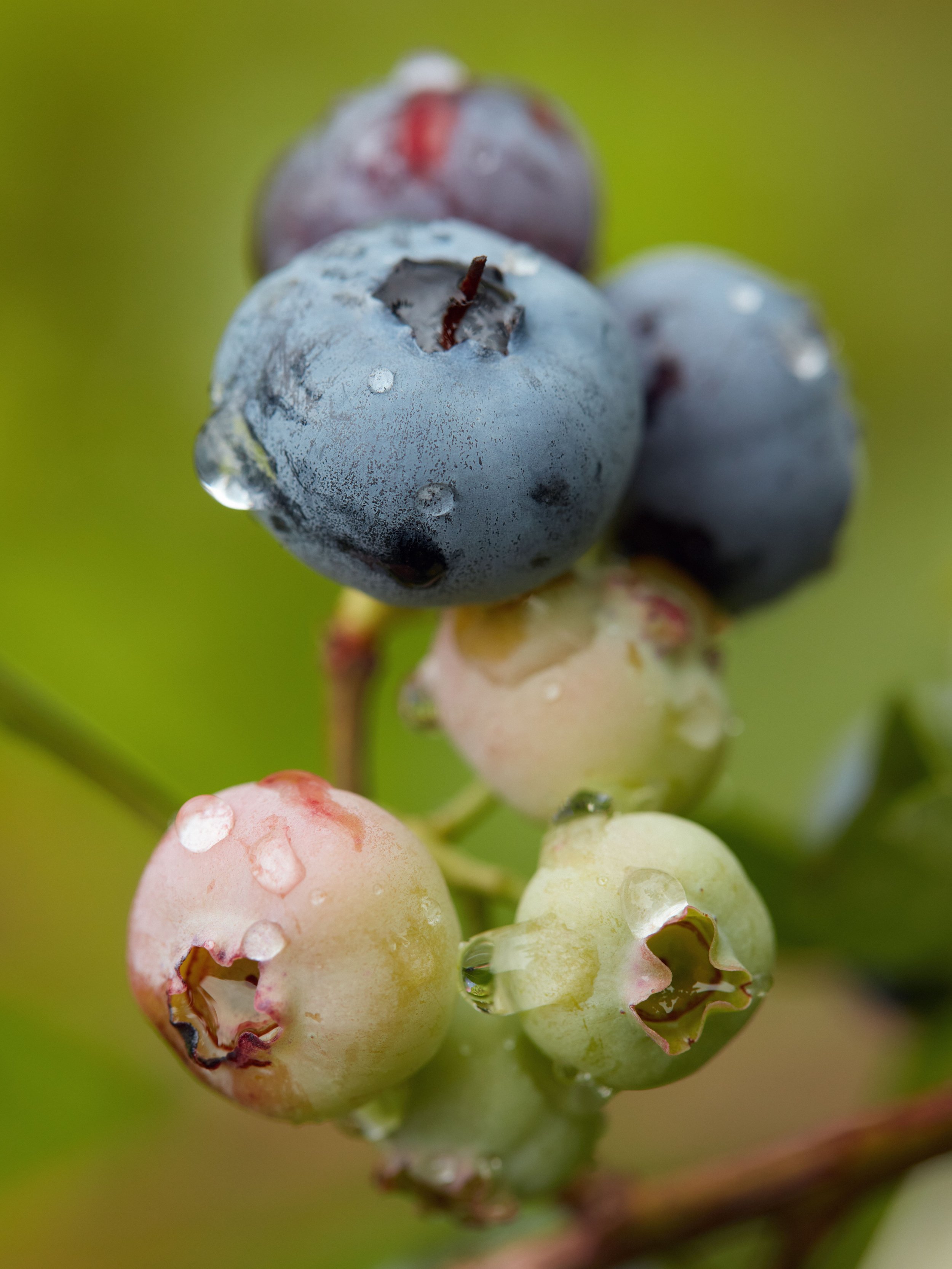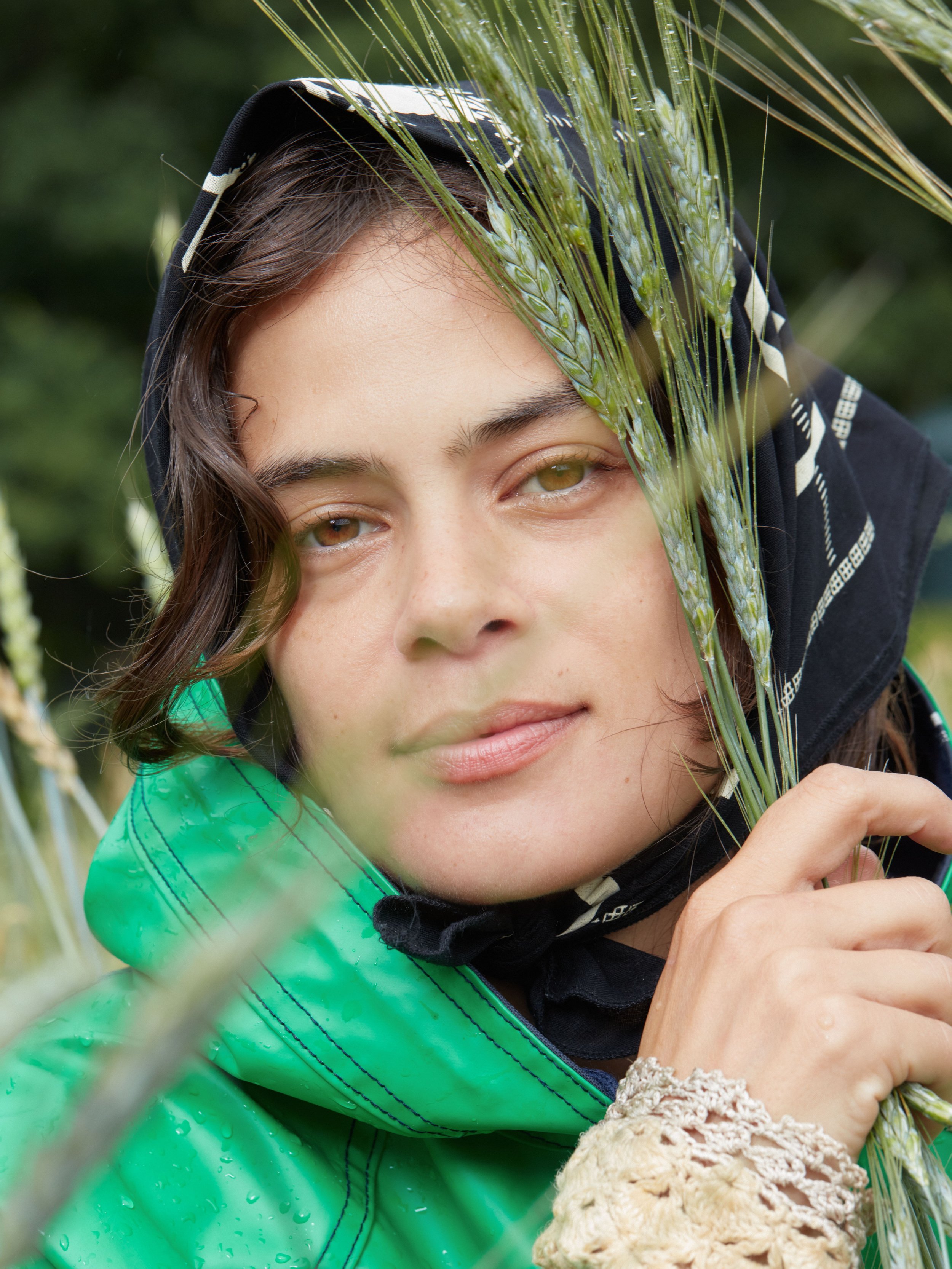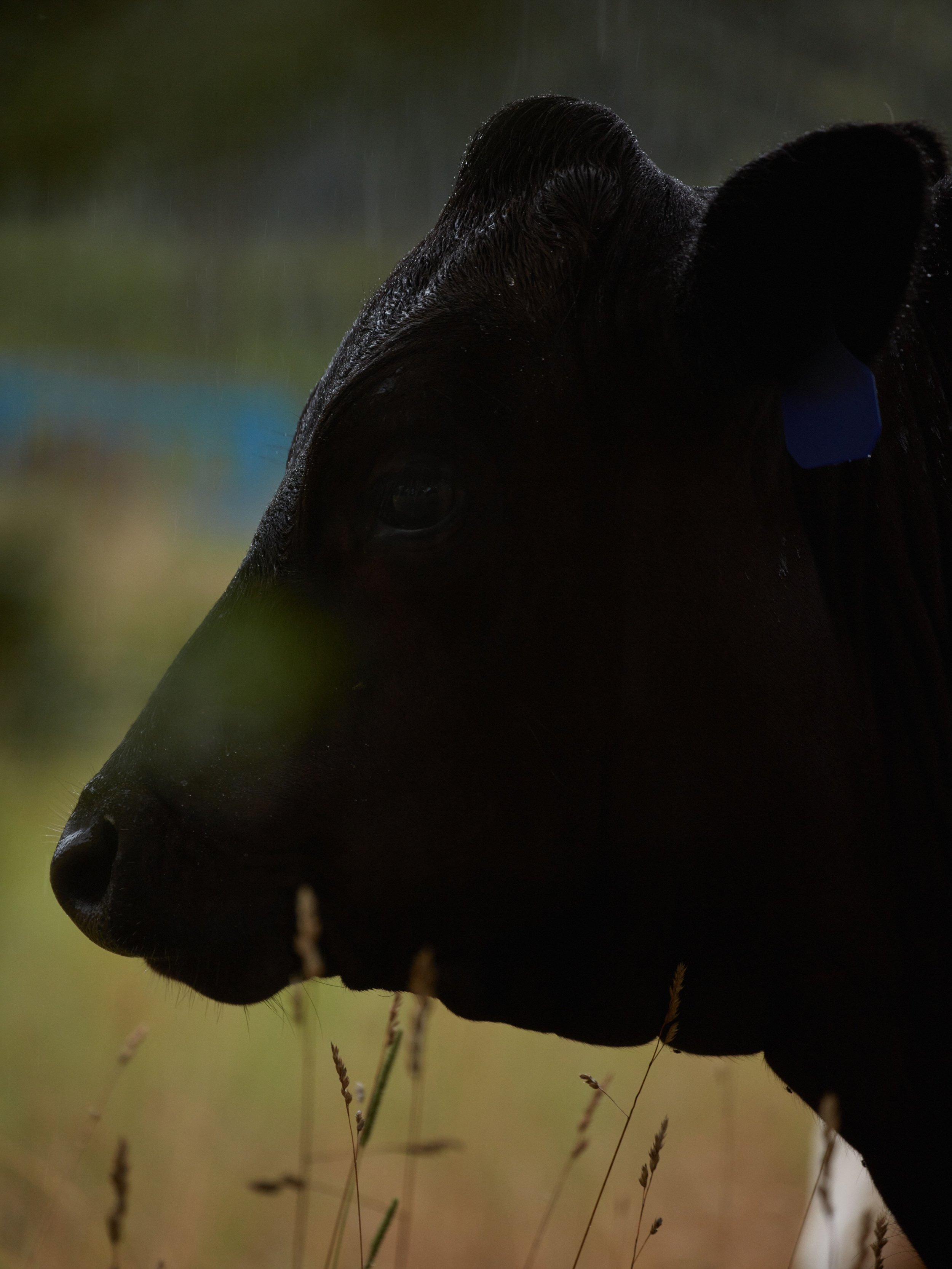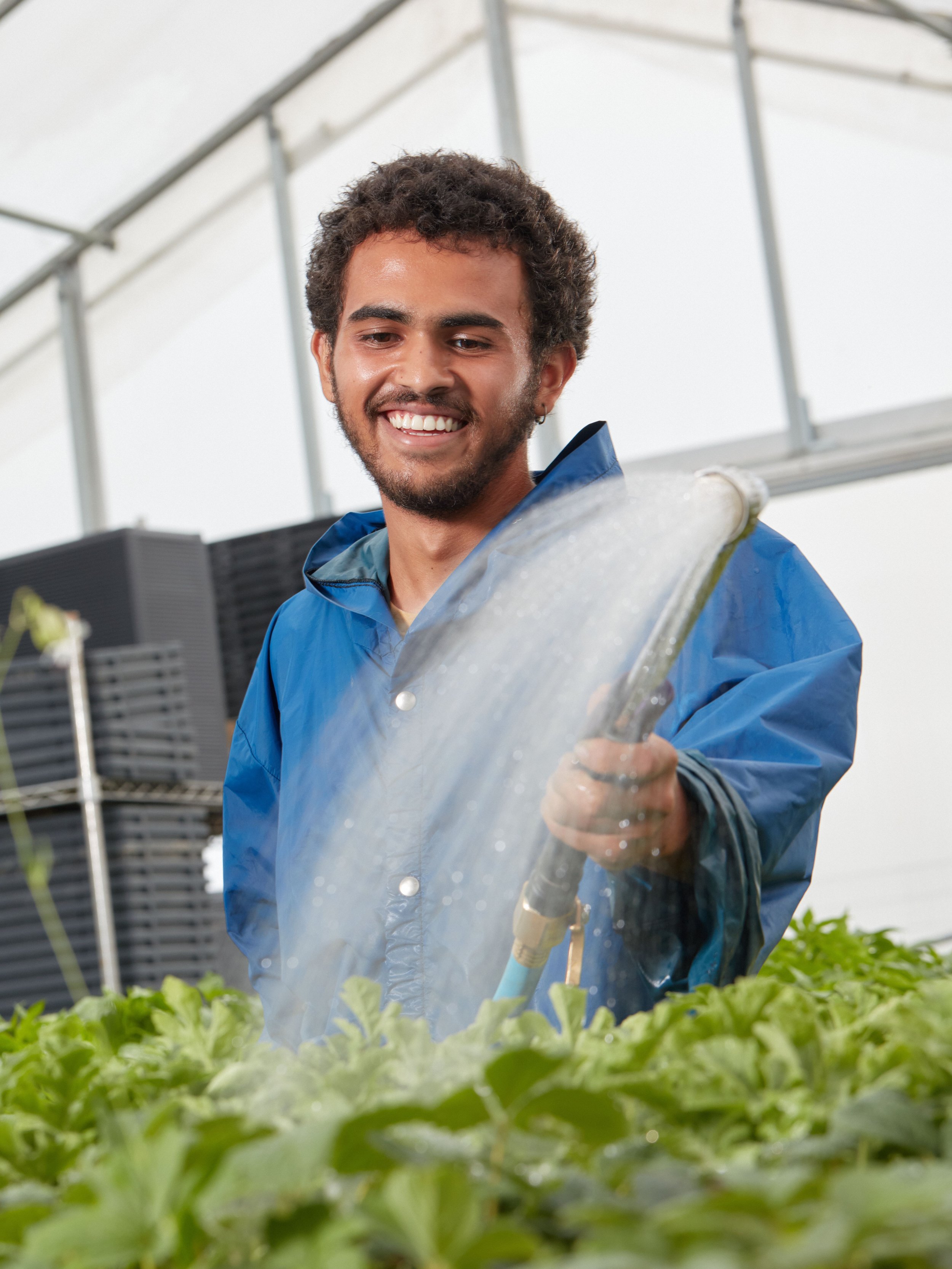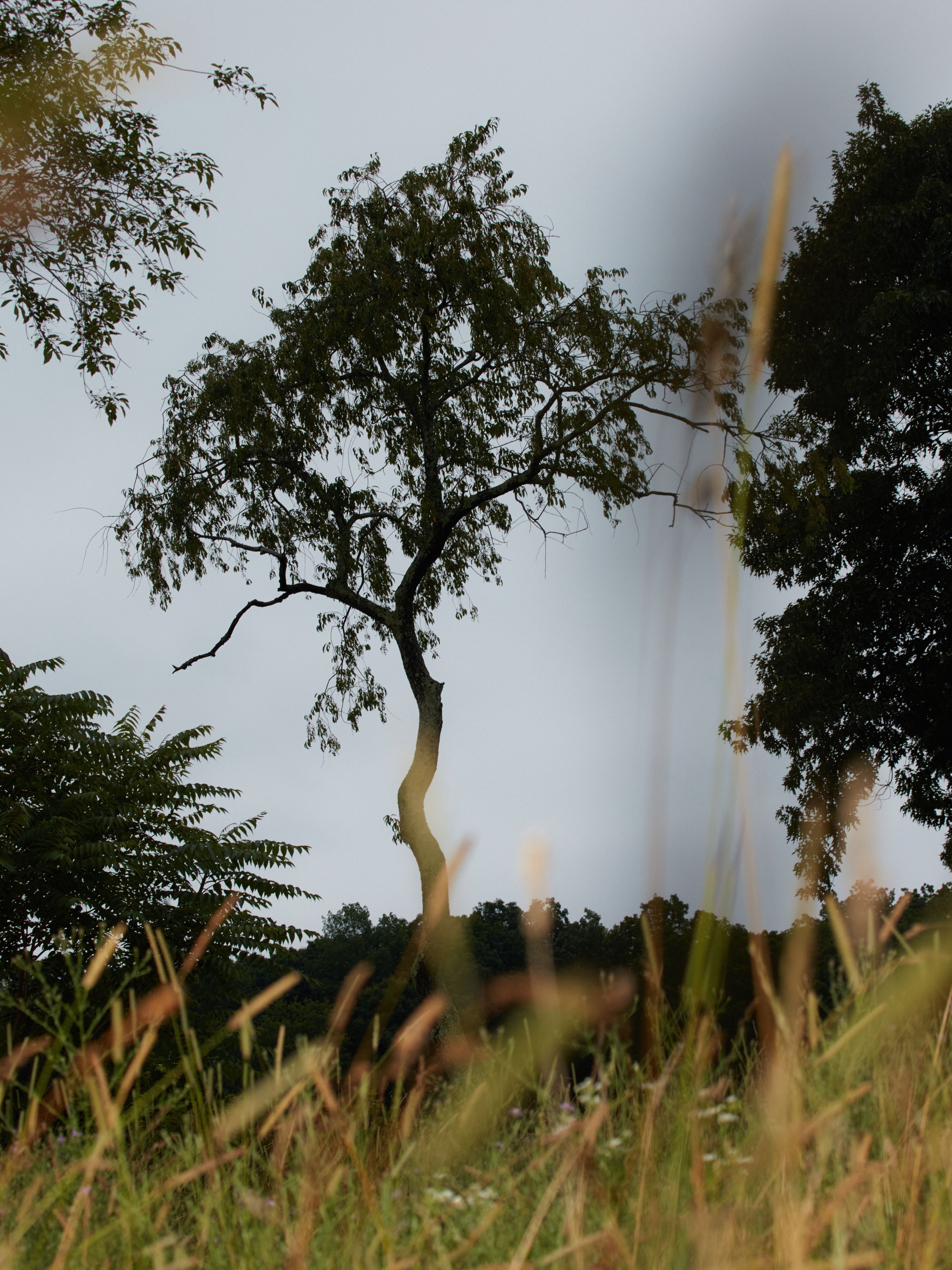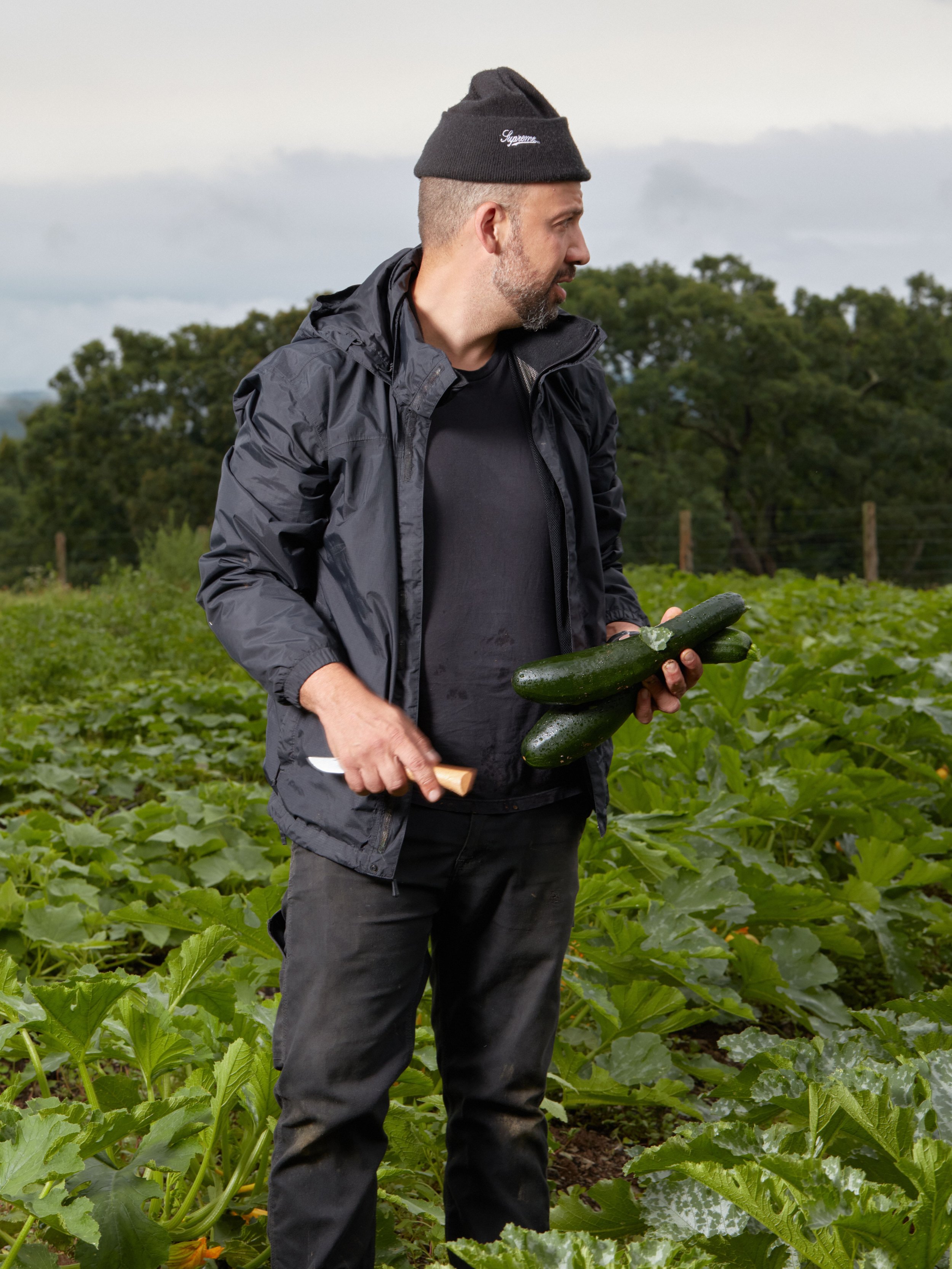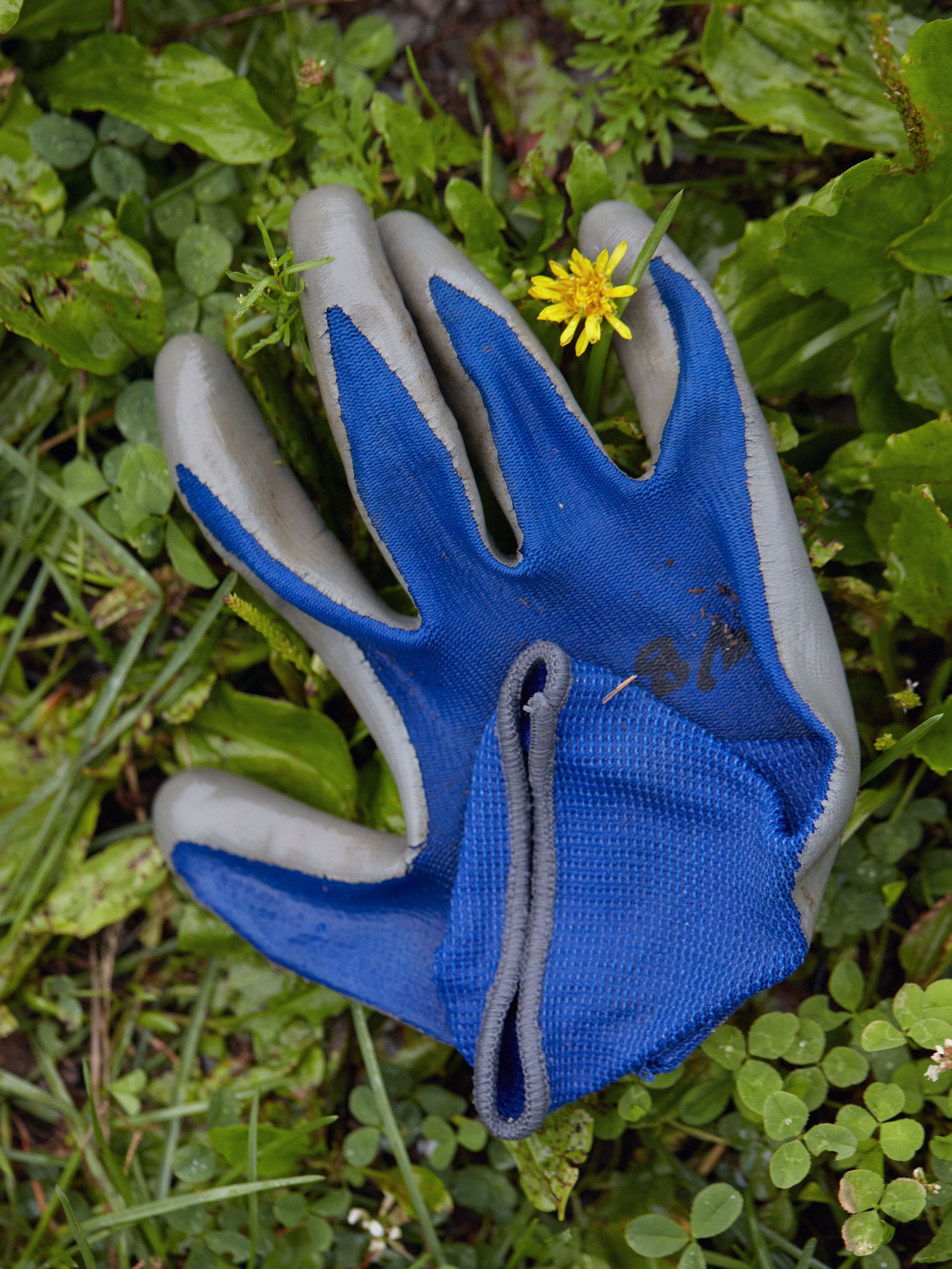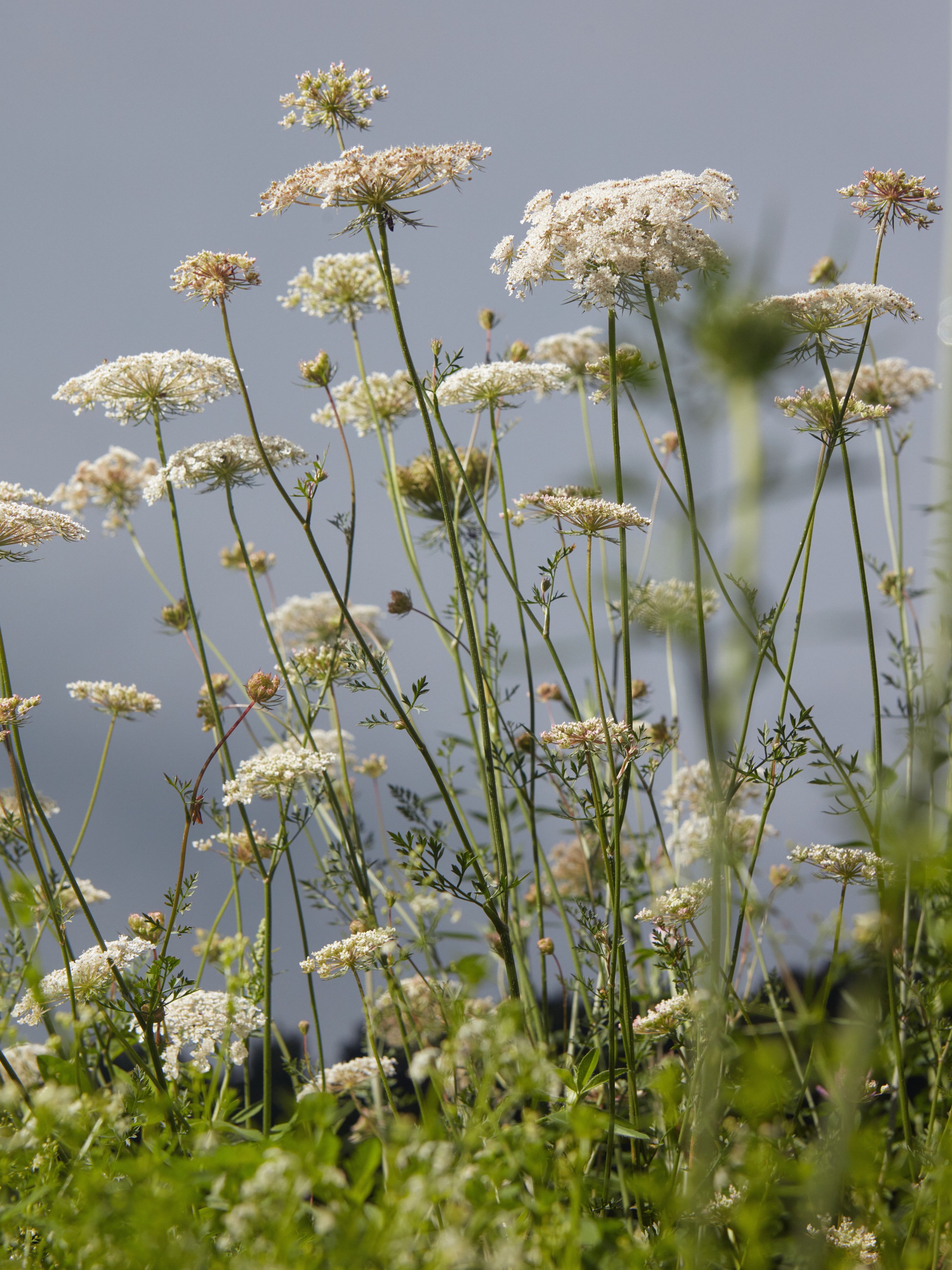interview by Gideon Jacobs
photographs by David Brandon Geeting
Many urbanites dream about farm life. They sit in front of their screens, filling out expense reports or arguing with coworkers on Slack, the blue light slowly irradiating whatever constitutes their unique human spirit, and they imagine that digging their hands into soil and pulling out some kind of root vegetable might cure what ails them. That wasn’t Dan Colen. Colen, an artist who is very much a product of New York City, with a name synonymous with the downtown Manhattan art scene of the aughts, didn’t end up owning and operating Sky High Farm out of manifested romantic notions about the rural, agrarian lifestyle. In fact, as I learned over the course of this interview, when he purchased the forty-acre chunk of Hudson Valley land, farming wasn’t even part of the plan. Like much of his art, he allowed form to develop on its own, following some combination of instinct and medium until he ended up with his biggest project yet. Since its first growing season, Sky High has donated 90,000 pounds of produce and 20,000 pounds of protein to help fight food insecurity in New York State, and they are currently working on developing an agricultural training program to support self-empowerment among those affected by the carceral system. The farm is a nonprofit, a complex machine that straddles the complex ecosystems of upstate New York agriculture, food justice, the art world, and more. That Colen ended up here at this stage in his career, devoting his life to this mission, might come as a surprise to many, maybe even to Colen himself. But in a way, that’s what makes the whole endeavor somehow unsurprising. That’s what makes it make sense.
GIDEON JACOBS My first question is, what would be the ideal outcome for you from something like this? When a magazine approaches you and is like, “Can we talk to you.” What do you hope to get out of that sort of thing?
DAN COLEN Well, it's a layered question in the context of the farm. I try to keep the mission of the farm first; it comes before my general art practice. Because the interviews can sometimes feel redundant. The mission here is to act as a representative of the organization. The farm grows produce and raises pasture-based livestock exclusively for donation. We work in marginalized communities within New York City and New York State. More and more people have a pretty clear understanding that food insecurity is a big issue now—more so than ever. But, the way we are trying to address food insecurity is really unique: through sustainable agriculture, and by producing the highest quality food for distribution. When we think of people going hungry, we think of food drives and a certain type of food that is really second rate. Even if it's fresh, it's usually banged up, or past the expiration date, or it's packaged, processed, and generally not that nutritionally dense, and that's really not a solution to food insecurity. I came to doing this work without that much intention, honestly, it was part of a pretty natural process. My only reference point to this process is my creative practice. And there's certain interviews that only like one way of talking about this project, and others that open up a dialogue that's more exploratory. I know that this would have never come to be without my creative practice, so it's tethered to that and all the best artworks I've made come out of that reluctance to call the thing that I'm doing art. Some of the best art is hard to get behind and offers something unfamiliar or maybe that even directly pushes against the preconceptions we have of what an artwork is. That's why I can naturally see this as a part of my creative process, but I do think it's important to talk about that side of the project. I really do think it's a very unique mission and one that's vital. What's important to me in the context of this interview—and it's really changed since the farm has become a part of my life—is being able to save some space to speak very plainly about the work the farm does, but at the same time, totally throw a wrench in it by considering the ways in which it's a part of my art practice.
JACOBS So, the ideal interview for you is one that would give exposure to the mission of the farm and call attention to it, but also, incorporate the wrench of getting it into the context of your overall career as a contemporary artist.
COLEN Yeah, and on top of that, speaking to the unique type of organization that Sky High is as a product of a creative practice, even though it takes the structure of a 501c3. So, there's many other organizations that do what we do and this one came to be through this searching process. And most public benefit organizations don't come out of that kind of searching. They're set up in a very deliberate and structured way.
JACOBS Before I ask about the specifics of the farm and how it fits within the context of your career, I want to ask you if you enjoy talking about your work and the farm? Do you feel like you learn something in interviews or are they sort of like a perfunctory means to an end at this point?
COLEN Depending on the day, I feel really differently, but I see a lot of artists having a very different kind of relationship to it. Interviews are a very natural part of their process. And then you see artists that just refuse to do them, or other artists that are really meticulous about how they do them, or are very formal. I have a lot of ambivalence about it and I have a lot of skepticism around it, but I can enjoy doing it. I think we have less and less time to kind of sit down and have meaningful conversations, you know? But at the same time, I think with art, there's this basic idea of the work speaking for itself, the process speaking for itself, and I do believe deeply in that. Interviews really put the focus on the things that are easier to unpack. The most powerful are the things that are impossible to talk about. I love artists that really refuse to do it. I have great admiration for them. For some reason I kinda just like to be more chill and have a conversation. I try to operate without a kind of preciousness around my own being and around my own ideas. I try to keep them accessible and inclusive.
JACOBS I think talking about work makes it more accessible, generally. So, let's talk about the farm a little bit, because the theme of this issue is biodiversity. In order for this to be the perfect Dan Colen interview for both of us, we have to approach the farm. I've read a little bit about what prompted the purchase of the land, but can you explain the shift that occurred in your mind, and the desires and goals that led to what is not only a big artistic or business decision, but also an enormous lifestyle change?
COLEN When I imagined moving upstate, I imagined the Catskills as a kind of stand in for all of upstate. I did start looking there, but couldn't find what I was looking for. So, I slowly drifted east. I ended up on the other side of the river and really connected to the landscape, but didn't acknowledge the major difference. Instead of the mountains and the forest, it’s all really farmland and pasture. And so, without being too conscious of this, I was imagining I would be communing with the mountains, but I ended up on a farm, and the way to connect with a farm is to cultivate it.
JACOBS But you didn't know you were gonna run the farm when you purchased the land?
COLEN I had no clue. I had no intention of that. I've never even had any vague, passing desire to have any relationship to agriculture prior to this thing that developed inside of me in a very unconscious way. I just moved in and I was like, it's not hitting how I want it to hit. It was just very clear that I was on a property, which had already been altered in order to be cultivated.
JACOBS Would you say you’ve had a relationship with nature throughout your life?
COLEN I think I was so obsessed, and in love with the city. I had some very distant romance about nature, and the reason I moved upstate is I had two experiences that came out of these moments where I was struggling to finish a body of work for a show. One time was in 2003 for my first show. And then, another time in 2010 for my first big show with Gagosian. I ended up leaving the city and going to an old friend’s house in the Catskills both times to finish these shows. And the first time, I really needed to leave the city because it was both something which fueled me, but also something which shackled me, or I can have a self-destructive relationship to it. I distinctly remember feeling like I needed to get out of the studio and walking through the forest and just being like, “This is bullshit. What is this? This is supposed to heal me?” I remember being disgruntled that it didn't work like an injection, or a pill. But, the second time, when I went back up. I ended up really interacting with the landscape in a very direct way, and I created a body of work using the landscape. But I didn't go up there with too much intention to do that. In my twenties, I did a lot of driving around America and Mexico, and landscape painting became very important for me. The Hudson River School in particular, but also French, Italian, Dutch, and German—all sorts of landscape artists. I looked at a lot of that at a time when I wasn't looking to connect to the landscape itself, per se, I was looking to go on a road trip and meet people. But my relationship to it, since I've been up here, has really evolved and it's really important to me at this point.
JACOBS How has working on the farm—having your hands and feet in nature—affected your everyday psychology?
COLEN Being in the mountains and the forest is something that's become very important to me. The experience that is helping me to evolve in a way is a mix between the time that I spend in the mountains and the time that I spend on the farm. To build a farm and help it operate and flourish is an amazing and radical experience. Farmers are some of the wildest people, the strangest people—definitely different than the people that I have been able to meet in the art world and in downtown New York. I really have gotten so much out of those relationships and, to cultivate the land, to grow food is unique because growing this food for other people is just profound. As I became more aware of how important it was to grow highly nutritious food for communities that don’t have access to it, it really brought me back to my creative practice, which is all about creating things for other people to experience. And the art world has a lot of great experiences to offer, but it's flawed in so many ways too. These things that artists create can get obscured by the industry and institutions of art, and it's hard for it to hold its initial intention as it goes through the layers of the art world. So it’s about coming back to a different type of production, which is based on the act of sharing. I grew up thinking that art offered a sustenance or some sort of vital human experience. I think that potential exists, but do all good artworks do that in the world?
JACOBS I think the answer's no.
COLEN No, they're not, but just seeing these things that were being produced on the farm in relation to artwork, not as the same, but as a foil to think about what it means to create, and what it means to share. I see that is a very important part of how my practice is developing currently with both of those experiences in mind, and trying to move them forward in a way that they can both have greater impact.
JACOBS I was just doing a quick Google of how many New Yorkers are currently experiencing food insecurity through the pandemic, and the numbers have skyrocketed. I'm wondering if you are able to feel proud of doing your part, or if you ever get into the zone of feeling like it's a drop in the bucket.
COLEN The work is very fulfilling, and in a way that is comparable to my studio practice. I can get lost on either side of that, because the art is meant to have no purpose. Its radicality is in the fact that prior to its making, nobody needed it and nobody was asking for it. Sometimes, as an artist, I feel like doing something as basic as growing food to feed people in need is almost not what I'm meant to be doing. But other times, I ask myself the opposite, like why can't art serve a function? Who's to say it can't be more radical actually serving a function and offering people something that they desperately need? I never think about it like a drop in the bucket, but I get that mentality. When I was initially creating the farm, wondering whether or not there was a point, I had this glimmer of optimism that I hadn't had previously, which really allowed me to see that. I can only do what I can do, and all of us on our own can more or less do an equal amount of things.
JACOBS That's beautiful. Do you identify as an optimist? Do you have hope for this pandemic-ridden, quickly heating, dysfunctional world of ours?
COLEN Listen, I'm just trying to be in the moment. I'm an optimist only in the Zen, like, I'm going to try to make the most of this moment. I don't know if it's going to get better or worse. I’m just trying to be sensitive to my surroundings, which is really what the farm is all about. With the better art that I've made, there's no intentionality also—it's just being sensitive to my surroundings and letting things develop and being in the process. And so I can be optimistic that I'm about to discover the next thing and I'm surrounded by things that will allow me to move forward.
JACOBS I want to ask you whether you believe in perfection.
COLEN Of course, I can catch myself in a struggle towards it sometimes. But, when I can step back in a moment like this, I have no faith in perfection as a point on the continuum, or the destination, but I also have no interest in it and no appreciation for it. I mean, it's not real, but if it were, I would try to avoid it at all costs.


